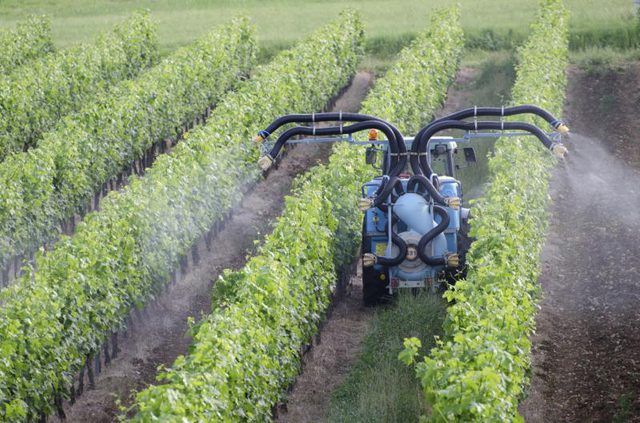Bulbs
Flower Basics
Flower Beds & Specialty Gardens
Flower Garden
Garden Furniture
Garden Gnomes
Garden Seeds
Garden Sheds
Garden Statues
Garden Tools & Supplies
Gardening Basics
Green & Organic
Groundcovers & Vines
Growing Annuals
Growing Basil
Growing Beans
Growing Berries
Growing Blueberries
Growing Cactus
Growing Corn
Growing Cotton
Growing Edibles
Growing Flowers
Growing Garlic
Growing Grapes
Growing Grass
Growing Herbs
Growing Jasmine
Growing Mint
Growing Mushrooms
Orchids
Growing Peanuts
Growing Perennials
Growing Plants
Growing Rosemary
Growing Roses
Growing Strawberries
Growing Sunflowers
Growing Thyme
Growing Tomatoes
Growing Tulips
Growing Vegetables
Herb Basics
Herb Garden
Indoor Growing
Landscaping Basics
Landscaping Patios
Landscaping Plants
Landscaping Shrubs
Landscaping Trees
Landscaping Walks & Pathways
Lawn Basics
Lawn Maintenance
Lawn Mowers
Lawn Ornaments
Lawn Planting
Lawn Tools
Outdoor Growing
Overall Landscape Planning
Pests, Weeds & Problems
Plant Basics
Rock Garden
Rose Garden
Shrubs
Soil
Specialty Gardens
Trees
Vegetable Garden
Yard Maintenance
What Is Insecticide?
What Is Insecticide?. Insecticides kill insects or otherwise inhibit their destructive or undesirable behaviors. This wide-ranging span of insect treatments covers everything from powders to liquids, and hazardous chemicals to household or natural remedies. Around the garden, paying attention to the insecticide's chemical composition is of utmost...

Insecticides kill insects or otherwise inhibit their destructive or undesirable behaviors. This wide-ranging span of insect treatments covers everything from powders to liquids, and hazardous chemicals to household or natural remedies. Around the garden, paying attention to the insecticide's chemical composition is of utmost importance, as nearby edible plants, pets and young children may be affected by these substances.
Insecticides and Pesticides
While some use the terms insecticide and pesticide interchangeably, they aren't exactly the same. Insecticide is one type of pesticide, but a pesticide isn't necessarily an insecticide. An insecticide kills or severely limits the unwanted behaviors of insects, specifically. Pesticide is a broad term that also covers fungicides and herbicides, which control fungi and plants, respectively. Other pesticides include miticides, which control mites, and rodenticides, designed for rodent control. Even mollusks have pesticide dedicated to their decimation -- molluscicides.
Short-Term and Residual Applications
Some insecticides are designed for short-term use only -- for instance, a spray that immediately kills roaches or flying ants. This type of insecticide may require you to spray the insects directly. Residual applications are designed to last longer, such as insect bait for termites inhabiting wooden garden borders. Residual insecticides include baits that attract a specific insect species. The insect ingests or becomes covered in the insecticide, typically resulting in death.
Ready-Made Solutions
Many store-bought insecticides contain hazardous chemicals that interfere with an insect's ability to function. These chemicals may also be hazardous to humans, pets and plants. Read the package's ingredient lists and warnings to be sure you thoroughly understand the product and its potential dangers before purchasing or using it. Hazardous insecticides should not be used near edible plants, food or food-preparation areas. Some may even be harmful to pets and wildlife. For best results, choose a narrow-spectrum insecticide that targets a specific problem, or opt for a store-bought or homemade nontoxic insecticide that poses no harm to plants, pets and people.
Natural Alternatives
Natural and nontoxic insecticides offer safer alternatives to the toxins used in many insecticide formulas. Insecticidal soaps, typically applied directly to plants, cause soft-bodied pests such as thrips and aphids to die, while horticultural oils suffocate the insects. Botanical insecticides use plant-based extracts such as neem oil to manage insects without harming the surrounding environment. Essential oils such as clove oil also have insect-killing properties, but typically require you to apply the solution directly onto the insects. Even though nature-based insecticides are deemed safe for use, they may damage plants if applied heavily. Some, such as clove oil, may cause a mild burning or numbing sensation on skin. Always wash your hands after handling any type of insecticide.